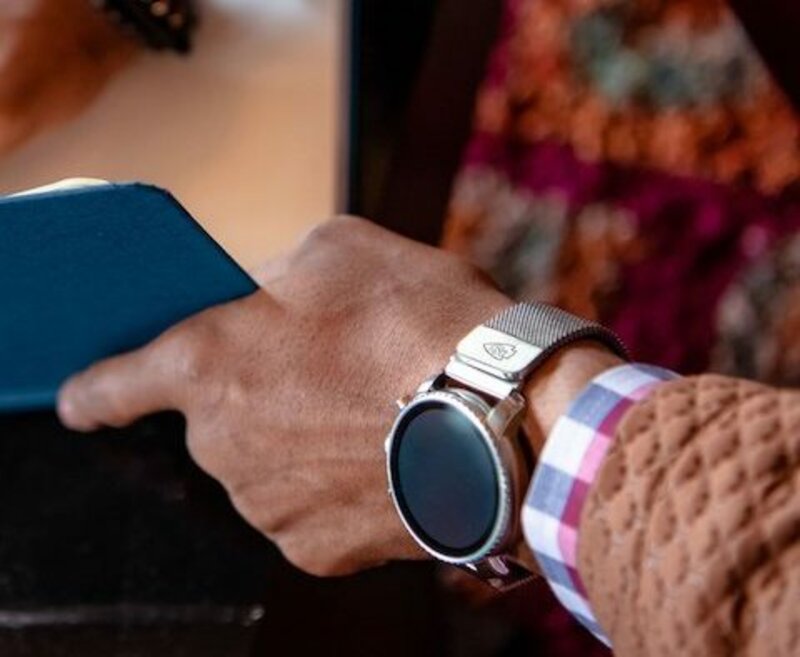
March 23, 2020
Affinity Bands: 9 Best Practices for Brand Licensing
Smartwatch sales have surpassed the entire output of the Swiss watch industry, and wearable tech offerings from Apple, Samsung, Garmin, Fitbit and others offer the opportunity for continued

Smartwatch sales have surpassed the entire output of the Swiss watch industry, and wearable tech offerings from Apple, Samsung, Garmin, Fitbit and others offer the opportunity for continued personalization and branding.
Having tapped into this market, Affinity Bands has realized 500 percent growth month over month for two years. With over 200 active licenses and more than 10,000 unique products, Affinity Bands continues to grow its portfolio of brand relationships that include manufacturing bands for Game Time (NFL, MLB, NHL and MLS) and through direct licenses with the NCAA, fraternities and sororities, U.S. military, and a growing portfolio of lifestyle brands including Gold’s Gym and Realtree. Affinity Bands is also in the process of signing several European professional soccer teams.
Like anything else in life, licensing isn’t something you should approach without a plan. You must do proper research and come prepared if you want to succeed in securing branding opportunities for your products.
Below are some of the best practices I’ve learned to follow during my time leading Affinity Bands and working to secure hundreds of licenses:
• Develop a Written Business Plan — As tempting as it may be, don’t shoot from the hip when applying for licensing opportunities. The occasions I have gone in without a proper plan have not worked out successfully. Have your ducks in a row if you want to succeed.
• Develop Sales Projections — Even for product categories that are new and undeveloped, always plot out sales expectations. This shows you have done your homework, and you should always back the numbers up with the reasoning behind your projections.
• Develop Brand-Specific Distribution — For each license you are courting, always be aware that each brand has its own unique distribution strategy and plan accordingly. For example, if you are seeking a Realtree brand license, you need to target the popular outdoor, hunting and fishing businesses for your distribution. However, a license from Disney would be targeted at more mainstream stores like Target, Walmart or the Disney Store.
• Be Prepared for Royalty Reporting — Your ability to produce data for royalty reporting is a cornerstone that’s essential for success in licensing, and the inability to do this can cause major headaches. Proper royalty reporting requires the development of an internal reporting system that’s extremely accurate and has the info that brands need to grade you on royalty reporting.
• Have a Good Product — In the end, brands are always looking to attach themselves to the right product. It sounds simple, but it’s true: A strong and unique project is the best weapon you have to help secure meetings and licenses.
• Consider Size of Audience — One fundamental truth in licensing is that some brands sell more than others. If you work in sports, for example, there are a handful of teams in each sport that will always sell better than the others, win or lose, while other teams will see sales vary based on success. Do your homework and target licenses that will pay off in the long run.
• Work with Groups that Handle Multiple Brands — One way to save time on applications is to work with organizations that represent multiple licenses (such as International Management Group, Collegiate Licensing Company, Learfield). By doing so, you’re giving yourself a leg up for future licenses. The trick is to get the first approval; then, you’re much more likely to get further approvals for other licenses from the same company (and many of these groups represent hundreds of brands).
• Be Prepared for Unique Approval Processes —As you venture into various types of licenses, you will learn that each brand has its own requirements. Some may base their approval in part on your credit score, and not just distribution and your product. Also, some brands will give you help to promote your branded products, and others won’t or aren’t allowed to.
• Bring Equal Leverage — Master the process through repetition. Some licensing is still done independently, so you will need to learn as you repeat the application process over and over. The more you do, it forces you to become more organized to streamline the process and save time.
David Schowalter is the founder and CEO of Affinity Bands, a leader in the personalization of smart watches and wearable tech. The company collaborates with hundreds of brands and organizations to expand their reach and awareness through branded wearable accessories. He can be reached at dave@affinitybands.com.
Share This Story, Choose Your Platform!
Marx Layne is your competitive advantage.
Your reputation and success are our only concerns.
